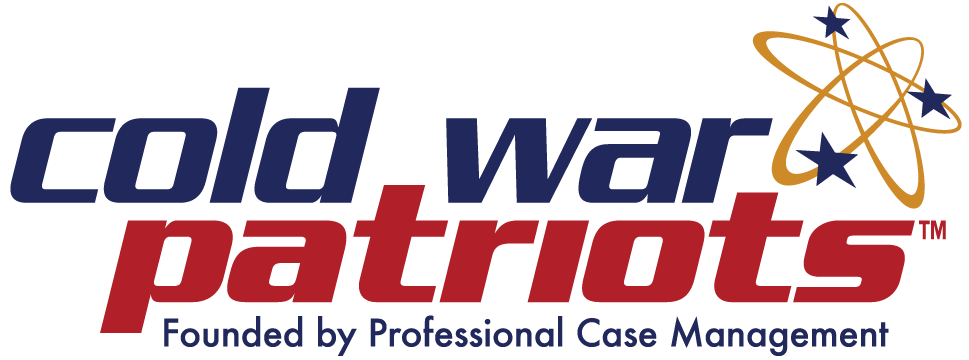
CWP Blog | CWP
Tips for Healthy Eating and Healthy Aging
July 2, 2025
July 2, 2025
CWP
CWP Blog
Daily exercise and a healthy diet are keys to healthy aging. Whether you’re in your 20s or your 80s, you can benefit from healthy routines. As you age, however, what you eat can have an even greater impact on your health. There are many reasons why. Primarily, older adults have different body compositions and metabolisms than younger adults. Older adults may also have certain illnesses or diseases, like heart disease, that are compromising their health and affecting how they’re digesting food.
Addressing Challenges that may Interfere with a Healthy Diet
Unfortunately, seniors often find it difficult to eat healthy. Why?
- Fixed incomes. Oftentimes the healthiest food is also the costliest. Items such as fresh fruit and veggies and lean meats represent a larger proportion of the grocery bill.
- Eating out more often. Once the kids are grown and out of the house, there is less incentive to cook at home, where it’s easier to control calorie intake. Seniors also eat out more often for social stimulation rather than eating at home alone.
- Chewing problems. As a result of missing teeth or ill-fitting dentures, some seniors have difficulty chewing, which makes it harder to eat such healthy menu items as nuts, fresh fruits and veggies, or well-cooked lean meats.
- Changes in taste buds. As we age, we tend to be on more medications, many of which can affect the way different foods taste or limit our appetites.
- Mobility issues and other physical impairments. Some common later-in-life illnesses make it difficult to maneuver in the kitchen, cut ingredients and prepare meals.
Tips for Eating Healthier
The National Institute on Aging offers many healthy eating tips customized for seniors, including:
- Plan meals. Making a list in advance of planned meals and ingredients (and sticking to it) can help you avoid unhealthy choices and save money.
- Eat a variety of foods. Choose a variety of fruits, vegetables, whole grains, and protein food to balance out your nutritional needs.
- Focus on nutrients. As you age, your nutrient needs increase, so focus on nutrient-dense foods.
- Read nutrition labels. Make informed food choices by reading food labels and avoiding products with added sugar, salt and saturated fats.
- Use less salt. Too much salt can increase the risk of high blood pressure and heart disease.
- Consume more fiber. Fiber helps regulate your digestive system and can reduce the risk of heart disease, type 2 diabetes, and certain cancers. Look for whole grains versus refined grains.
- Don’t skimp on the calcium. Bone health is especially important as you age. Even if you have developed an intolerance to certain dairy products, make sure to include foods high in calcium in your daily diet.
- Avoid empty calories. Also known as junk food, these are foods with lots of calories but few nutrients, such as chips, candy, baked goods, soda, and alcohol.
- Be physically active. Exercising does more than boost your physical and mental health. It may also help you feel hungrier if you have started losing your appetite.
- Visit the dentist regularly. Good oral hygiene and regular visits to the dentist can maintain tooth health and ensure dentures or implants are fitted properly for optimal chewing.
- Bring in outside help. If physical constraints or mobility issues are keeping you from preparing healthy meals, consider hiring a home health caregiver from a company like Professional Case Management (PCM). If you or your spouse have qualified for a U.S. Department of Labor medical benefits white card, you’re entitled to free in-home care services as part of your Energy Employees Occupational Illness Compensation Program Act (EEOICPA) benefits program.
- Stretch your food budget. Too many seniors don’t get the nutrients they need because they feel they can’t afford them. However, multiple government assistance programs are available. The Supplemental Nutrition Assistance Program (SNAP), for example, is specifically designed to make healthy food more affordable.
What You Drink also Matters
Older adults are at a greater risk for dehydration. This is partly due to a change in body composition. Those age 65 and up have less water in their bodies than younger adults. Decreased kidney function (often a result of aging) can also affect fluid levels within the body. Complicating matters is the fact that older people often don’t feel thirsty due to various behavioral and cognitive changes that cause them to miss the brain’s signals to drink. By the time older people actually feel thirsty, they may already be dehydrated.
Water is necessary for nearly every bodily function, from lubricating joints to regulating body temperature and pumping blood to your muscles. Not getting enough of it can have serious health consequences. Dehydration is a common cause of hospitalization among those 65 and over.
Signs of dehydration include fatigue and weakness, dizziness or loss of focus or coordination, dry mouth, dry cough, headaches, muscle cramps, chills or heat intolerance, and flushed skin.
Tips for avoiding dehydration include:
- Get creative. Drinking straight water every day can get boring. So try dropping in some sliced fruit, like lemon or strawberries, into a glass. Milk or various milk alternatives are also good. Fruit juice is also an option but watch for juices with excess sugar in them.
- Avoid caffeine. Caffeinated beverages like tea, coffee or soda products can have a diuretic effect, which means you’ll urinate more often.
- Eat hydrating foods. Fluid doesn’t have to come out of a glass, as many foods — such as cucumbers, celery and watermelon — are high in water content.
- Keep a water source nearby. The easiest way to consume the recommended six to eight glasses of water per day is to drink throughout the day. Keep a water bottle or glass of water near you at all times.
You Can Do It!
As you become older, the foods and drinks that make up a healthy diet for you may be slightly different from when you were younger. So check with your healthcare provider about recommended serving sizes and diets that match your specific health needs.
Nuclear weapons and uranium workers using their EEOICPA benefits with a U.S. Department of Labor medical benefits white card can ask their caregivers about specific diet, exercise and nutrition tips. Workers who use their EEOICPA benefits with Professional Case Management have a local care team who can answer questions about their specific situations. To start or continue an EEOICPA claim or to see how you can maximize your EEOICPA benefits, call Cold War Patriots today at 855-230-1339 or email us at [email protected].
